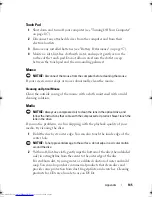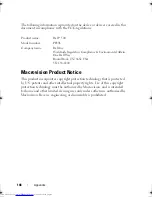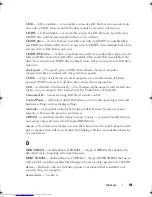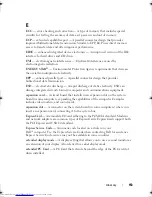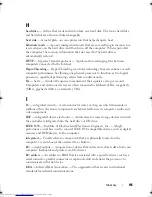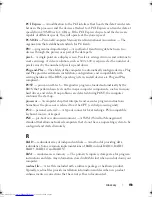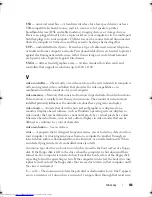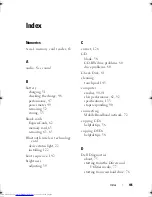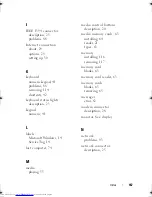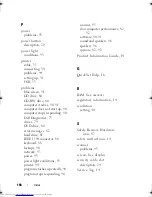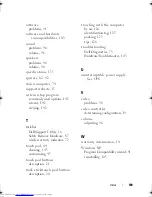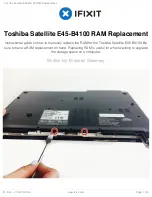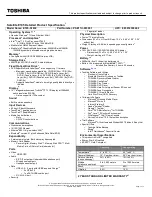
Glossary
159
PCI Express
— A modification to the PCI interface that boosts the data transfer rate
between the processor and the devices attached to it. PCI Express can transfer data at
speeds from 250 MB/sec to 4 GB/sec. If the PCI Express chip set and the device are
capable of different speeds, they will operate at the slower speed.
PCMCIA
— Personal Computer Memory Card International Association — The
organization that establishes standards for PC Cards.
PIO
— programmed input/output — A method of transferring data between two
devices through the processor as part of the data path.
pixel
— A single point on a display screen. Pixels are arranged in rows and columns to
create an image. A video resolution, such as 800 x 600, is expressed as the number of
pixels across by the number of pixels up and down.
Plug-and-Play
— The ability of the computer to automatically configure devices. Plug
and Play provides automatic installation, configuration, and compatibility with
existing hardware if the BIOS, operating system, and all devices are Plug and Play
compliant.
POST
— power-on self-test — Diagnostics programs, loaded automatically by the
BIOS, that perform basic tests on the major computer components, such as memory,
hard drives, and video. If no problems are detected during POST, the computer
continues the start-up.
processor
— A computer chip that interprets and executes program instructions.
Sometimes the processor is referred to as the CPU (central processing unit).
PS/2
— personal system/2 — A type of connector for attaching a PS/2-compatible
keyboard, mouse, or keypad.
PXE
— pre-boot execution environment — A WfM (Wired for Management)
standard that allows networked computers that do not have an operating system to be
configured and started remotely.
R
RAID
— redundant array of independent disks — A method of providing data
redundancy. Some common implementations of RAID include RAID 0, RAID 1,
RAID 5, RAID 10, and RAID 50.
RAM
— random-access memory — The primary temporary storage area for program
instructions and data. Any information stored in RAM is lost when you shut down your
computer.
readme file
— A text file included with a software package or hardware product.
Typically, readme files provide installation information and describe new product
enhancements or corrections that have not yet been documented.
book.book Page 159 Thursday, August 7, 2008 5:00 PM
Downloaded from
www.Manualslib.com
manuals search engine
Summary of Contents for Vostro 500
Page 12: ...12 Contents Downloaded from www Manualslib com manuals search engine ...
Page 18: ...18 Finding Information Downloaded from www Manualslib com manuals search engine ...
Page 38: ...38 Setting Up Your Computer Downloaded from www Manualslib com manuals search engine ...
Page 46: ...46 Using the Keyboard and Touch Pad Downloaded from www Manualslib com manuals search engine ...
Page 54: ...54 Using a Battery Downloaded from www Manualslib com manuals search engine ...
Page 66: ...66 Using Cards Downloaded from www Manualslib com manuals search engine ...
Page 124: ...124 Adding and Replacing Parts Downloaded from www Manualslib com manuals search engine ...
Page 140: ...140 Specifications Downloaded from www Manualslib com manuals search engine ...
Page 170: ...170 Index Downloaded from www Manualslib com manuals search engine ...

